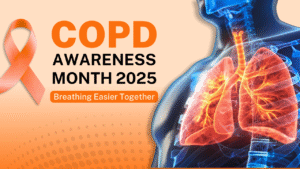It’s easy to get caught up in “calorie counting” or “eating clean” when trying to improve health or lose weight. But what if I told you that neither of these approaches alone gives you the full picture? While both have their place, understanding macronutrients—proteins, carbohydrates, and fats—can be the key to optimising your diet and overall health.
Calorie Counting: A Narrow Perspective
Calorie counting can help create a calorie deficit or surplus- on paper! It’s an easy way for a layperson to reduce portions specially for weight loss. However, it often overlooks food quality. In this case, one may lose “weight” but that loss could be coming from dropping more muscle than fat.
For example, 200 calories from a sugary snack affects your blood sugar and satiety differently than 200 calories from lean protein or healthy fats.
You could eat a diet full of processed, low-nutrient foods and still hit your calorie goals. But that won’t help you build muscle, maintain energy, or support long-term health. That’s where quality of calorie giving nutrients come in. Fat loss vs weight loss and muscle gain vs fat gain!
Eating Clean: Great Start, But What’s the Balance?
The concept of “clean eating” can be subjective. Some might avoid sugar and processed foods, while others focus on organic or plant-based choices.
The issue? Clean eating without a balanced macronutrient intake can lead to missing essential nutrients.
Clean eating also doesn’t always ensure a balanced diet—one that meets your individual nutritional needs. A diet that works for one person might not work for another because factors like activity levels, metabolism (which is influenced by genetics), and health goals vary. The key is finding a balance of macronutrients—protein, fats, and carbohydrates—tailored to your body. Balanced diet is not a standard diet defined by the internet because it does not factor how your body works.
Another critical aspect often overlooked is calorie composition. Achieving a calorie deficit without considering where those calories come from can lead to muscle loss. If you don’t consume enough protein or healthy fats, your body may break down muscle for energy instead of fat. This not only affects your body composition but also slows down your metabolism, making fat loss harder in the long run.
Why Macronutrients Matter More Than Just Calories or Clean Eating?
It’s not just about eating clean or cutting calories—it’s about maintaining a balance that preserves muscle and supports your overall health and energy levels.
The key to successful weight loss lies in balancing macronutrients rather than solely focusing on calorie counting or clean eating. Protein builds muscle and keeps you full, carbs provide energy, and healthy fats support brain function and hormone regulation.
What’s Really Better for Weight Loss?
Ultimately, the focus should be on consuming the right mix of macronutrients tailored to your body’s needs.
For example, a low-carb, high-fat, moderate-protein diet encourages fat-burning through ketosis, where your body uses fat as fuel instead of carbs. This can result in better body composition, reduced hunger, and more stable blood sugar.
A structured workout plan with nutrition to match enhances overall health and fitness while supporting weight loss.
- Janvi Dhanak, Sports & Clinical Nutritionist.





